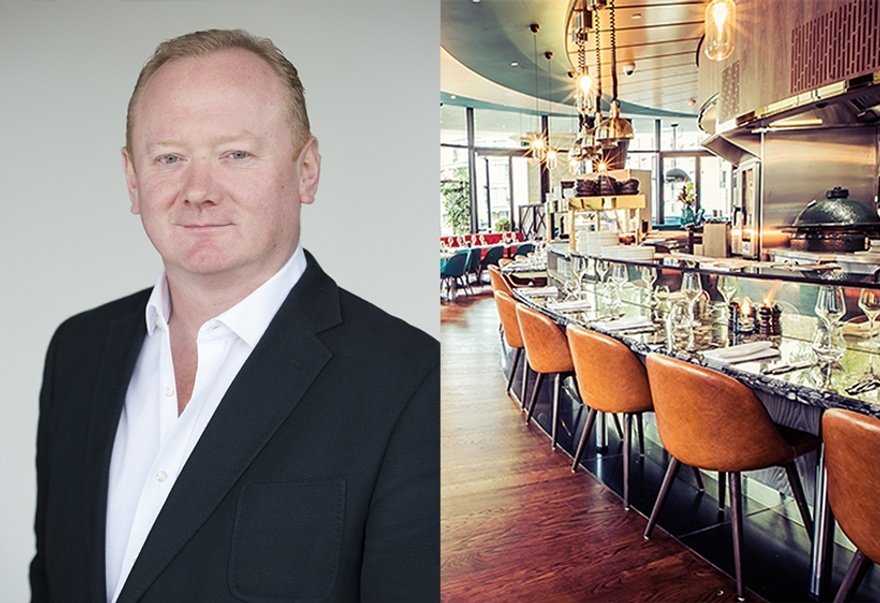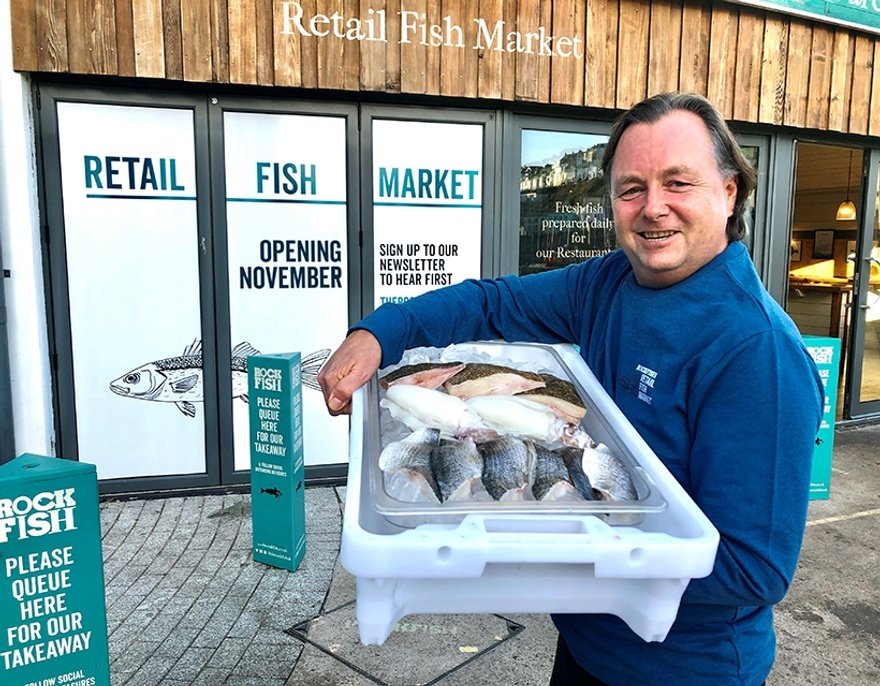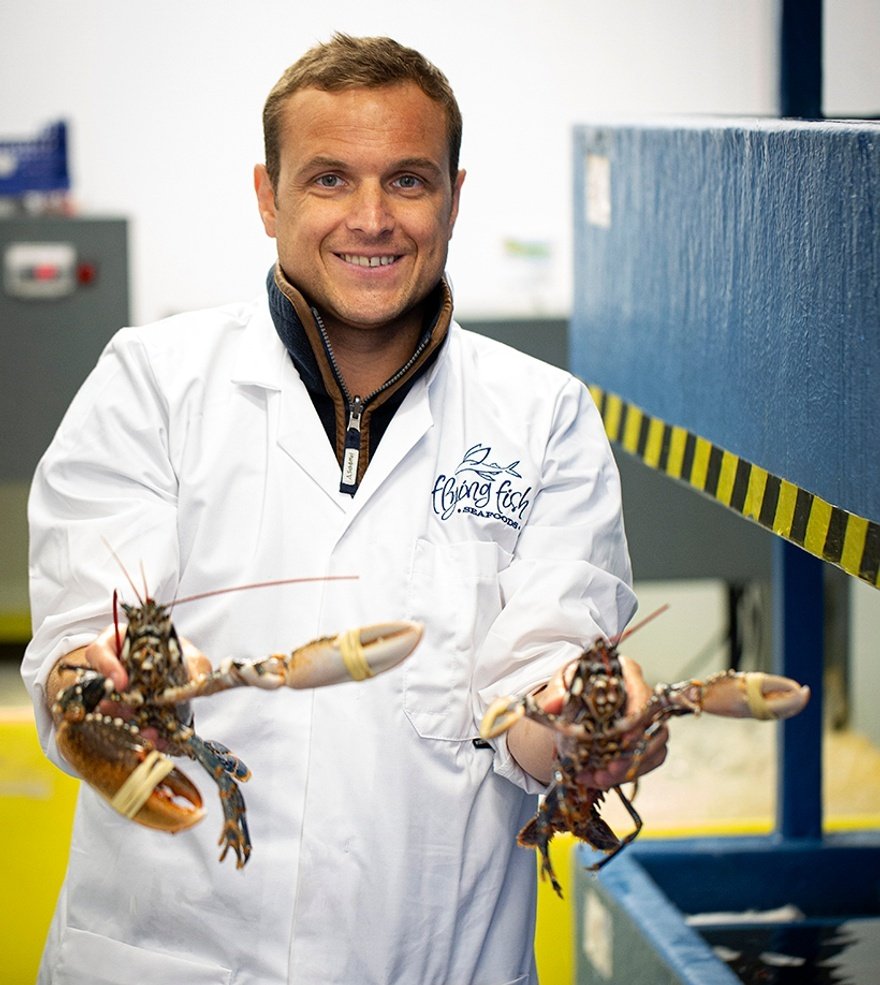While media and government have focused on the challenges caused by the pandemic for restaurants, hotels, cafés, pubs and bars, there has been less support for the producers, manufacturers, suppliers and wholesalers. Lisa Jenkins discovers how these businesses have survived and how the relationship between operators and suppliers has changed.
As we come out of the second lockdown in England and head back into tiered systems, operators will be champing on the bit for their suppliers, producers and wholesalers to get them back up to speed again, for whatever business there is to be had.
Relationships between operators and suppliers have changed during the pandemic, some say for the better. But what's for sure is that publicans, bar managers, food and beverage managers, chefs and accountants will have a much better understanding of lead times.
Third-generation family-run Class One Fresh Produce in Skipton, North Yorkshire, has been supplying the hospitality industry for 25 years. Managing director Ben Cluny (pictured above) says the second lockdown was more difficult in some ways. "In the first lockdown, we only had one customer who couldn't pay their bill – everyone else paid – and that's because they all got grants. Then we moved into early October and we were chasing late payments from September and knew we wouldn't get October payments quickly. There were no grants this time. I don't know how many businesses will walk away from this second one."
Cluny says that keeping in contact with his customers during the first lockdown was vital in keeping the business afloat. The supplier was able to support operators doing takeaway and those selling produce in pubs, like the Red Lion hotel in Burnsall and Grassington House in Skipton, which opened a market stall on Grassington Square.
"We changed our business," explains Cluny. "We had a lot of stock, and we set up an online shop on Shopify. We were busy in April, May and June, but that gradually eased off.
"With the second lockdown, everyone still went to work. They weren't really ‘locked in' and the supermarkets were coping, so there was no domestic offering required."
The situation is precarious, says Cluny, and he hopes they'll make it through. There is no spare cash in the business, with the reserves having been used up in the first lockdown.
He wants the government to understand the lead times required to buy the stock – and the implications. "Hospitality is made up of many moving parts and we are just a small cog in a very big machine."
Hospitality is made up of many moving parts and we are just a small cog in a very big machine
Class One Produce was also not able to claim on its insurance. Even though the word pandemic is in its policy document, it doesn't specifically cover Covid-19, a decision made by NFU Insurers.
Despite all the setbacks, Cluny is staying positive, saying his business is relatively small and therefore more agile. "The rainy days have come, but people always want to eat out – so now our goal is to make it to next Easter."
Tim Adams, director of marketing and corporate sales at Bidfood, says its customers made a commitment to take stock where they could, freezing chilled products to prevent waste.
Customers have been supported with payment plans, so there is regular money coming in, enabling Bidfood to pay its producers. Contracts have been extended with operators too, so that lost trading time can be made up.
"The vast majority of our customers have paid their accounts and we've tried our best to support them all along," says Adams. "Some have needed some flexibility, and sadly a few have gone into administration due to getting into a bad debt cycle, but this was not their fault."
Adams is confident about the future. "We've become faster at making decisions during the pandemic and become much more agile, with less red tape. We appreciate our long-term relationships and partnerships even more than we did before. There have been lots more conversations, and our customers have been grateful for the other resources we supply, such as menu development, insights, and trends.
"People will remember who looked after them in the lockdowns and I'll remember the suppliers who looked after me," he adds.
Adams agrees with Cluny on lead times and says there is still a lack of awareness and understanding of the necessities. "The whole chain has to be supported," he explains, and notes that when it comes to reopening,
operators need to have "an appreciation for how quickly products can be stocked again – our manufacturers and producers have been on furlough, too."
The operator's view
John Nugent, chief executive of Green & Fortune, says the contract caterer has been lucky to work with some fantastic suppliers over the years, many of whom have been with the business since day one and with whom it has always had strong relationships. "These bonds certainly helped us agree on ways that both parties could move forward during the lockdowns. We don't function without them and they don't function without us."
Green & Fortune was able to pause some accounts, using the mindset that "we will all be back to business and continue where we left off," adds Nugent. "It's been a huge support and eased pressure knowing that we can rely on these people to be there for us as we resume operations and for them to know they won't lose our business."
As soon as the reality of the lockdowns became clearer, Nugent and his team started a significant engagement exercise with all its suppliers. Nugent wrote to them all personally and asked for their support. "Apart from a handful, all suppliers appreciated the direct way in which we proposed to deal with outstanding payments. Our revenues were switched off overnight and this had a devastating impact on our cash flows.
"We are on a clear path now. Discussions were handled respectfully and the whole process is now complete."
Nugent emphasises how much communication has been involved, stressing that personal relationships play a bigger part than technology. "We have advanced procurement and stock management systems, but when it comes to hardship and struggles, there is nothing better than picking up the phone and talking to someone. It gives you an understanding of what both parties are going through far more than technology ever could," insists Nugent.
As we ease into Christmas, Nugent says the pandemic has shown how important it is to be flexible and nimble, now more than ever. "Hospitality always has and will be about people: people supplying us, our people delivering the product and the public enjoying it and coming back."
Hospitality always has and will be about people: people supplying us, our people delivering the product and the public enjoying it and coming back
Collaboration through crisis
Andrew Aston, head of wellness and nutrition at BaxterStorey, was flat out during the first lockdown. He and the London culinary team led a project for the NHS, supplying 12,500 meals in the first six weeks, with ingredients and products provided by BaxterStorey's existing and new suppliers.
Paul Rhodes at Watts Farms, says Aston, went from supplying 40,000 lines to just eight overnight. "All of our suppliers came together and worked like a co-operative with bigger transport links – it was wonderful to see. I'm very proud of how the suppliers worked, as well as how we supported them. Covid has fast-forwarded us all to a place where we are being kinder and sharing our ideas."
Restaurateur Mitch Tonks says the Covid-19 pandemic has been the making of Rockfish. "We were always a solid business, but like everyone else we had operational challenges that we tackled weekly. During lockdown we were able to stand back and, say: ‘Why do we do that?' and ‘What could it be like?'.
"We Zoomed and chatted and debated every detail, from staff hours to the menu, the drinks list to new projects – all the things we would love to do but never could."
Rockfish supported suppliers by selling their produce at cost from the Brixham restaurant, which helped keep suppliers' production going, developing stronger relationships between the businesses as well as maintaining a bond with customers and avoiding food waste.
"It became a weekly event. We cleared asparagus gluts and together we all kept the wheels moving. It's good to be in it together and it was good to have a positive impact on our communities and their ecosystems," says Tonks.
At the beginning of November, Tonks and his team fast-tracked the opening of their planned retail fish market in Brixham. They have their own boat, Rockfisher, which is out at sea whenever the weather allows, with its catch available to buy from the shop and the Brixham fish auction each day.
Working parts
BaxterStorey's equipment suppliers, including KitchenAid UK, Thermomix UK and Bosch, were loyal too. Watts Farms, Nestlé, Grenade, Hippeas, Major International, Vegetarian Express, Bidfood and Real Kombucha among many others, all contributed to the project to feed NHS workers and new relationships have been formed.
When it comes to equipment across the industry, Steve Hobbs, chair of the Foodservice Equipment Association (FEA), says the pandemic has undoubtedly led to closer engagement between operators and equipment suppliers, as they collaborate to produce solutions to the operational problems that Covid-19 has generated.
But, despite a better understanding, 60% of respondents to the FEA's state of the industry survey, conducted among FEA members, reported problems with collecting payments from customers. "The pandemic has highlighted the extended payment terms across the whole supply chain, from operators to dealers to manufacturers," says Hobbs.
The pandemic has highlighted the extended payment terms across the whole supply chain, from operators to dealers to manufacturers
However, there has been increased interest in alternative finance solutions, such as leasing, which doesn't draw on capital expenditure.
"There have been business shutdowns and redundancies in the equipment sector," adds Hobbs. "Obviously, this is not good, but it will make the industry leaner and more streamlined. Consolidation among the supply chain will change the mix of products available.
"In the short term, Brexit issues may also lead to longer lead times. On the other hand, the speed of advances in design and technology could lead to faster innovation and product development.
"The closure of so many foodservice operations will also mean a big increase in the availability of secondhand appliances, which may further suppress new equipment sales. This has the potential to seriously delay the key sustainability aim of the market, which is to be carbon net zero by 2050.
"New equipment can deliver on energy-saving, labour-saving and increased productivity, whereas second-hand appliances will not. As operators look to repair rather than replace equipment, the supply chain will have a bigger focus on after-sales service and customer support."
Most FEA members don't expect business to be back to pre-Covid-19 levels for at least 18 months.
Forging relationships
There have only been a handful of hotel openings over the last nine months, and Principal's Grand hotel in Birmingham, scheduled to open on 4 November, will now open in early 2021. Adam Bateman, culinary director, explains how frustrating it has been: "New suppliers were understandably reluctant to come on, because either they didn't have the staff or the capability to supply a large hotel, with their teams being on furlough or their finances being unstable.
"For me it was really turning to people I had relationships with and picking up the phone, people like Dan Whitmore at Wellocks, Simon Smith at Aubrey Allen, Johnny Godden at Flying Fish and Chris [Knowles] and JP [Jon Paul Glassford] at Ritter Courivaud, and many others who I know and trust."
Aubrey Allen's sales and marketing director Lucianne Allen says its strategy as a business has always been to focus on close partnerships with clients, and that she received numerous calls and messages of support throughout the last nine months. "Clients have been really understanding that we have had to vary some of the terms of trading to ensure we are all here for the long term. Our commitment in return has been to be fully stocked with fresh produce and to give as much stability on pricing as we can. There is enough uncertainty.
"During the lockdowns, our message was ‘please keep speaking to us and let's make realistic payment plans together'. It was a tough time all round. Suppliers received zero government support but were left with thousands, if not millions, of pounds worth of stock and unpaid debt and we had to keep staff on to manage the stocks.
"Since reopening, payment has been on time for the majority and many clients want tighter terms to keep a close eye on their own cash flow. Nobody wants to go into unchartered waters and make their business vulnerable."
Aubrey Allen has never been a high-growth company, adds Allen, who explains that partnering with the right clients has always been more important than chasing turnover, and stresses that 2020 has highlighted that even more.
Johnny Godden, the founder of Flying Fish Seafoods, pivoted during the first lockdown, launching Flying Fish at Home, which has proven incredibly successful. "When we first came back, a lot of our customers came back with a phased approach, so we spoke to everyone individually," he explains. "We needed them as much as they needed us. We kept our prices keen and the quality was always there. Flying Fish at Home started up at the beginning of May and eased us back into work, getting the team working again."
The industry continues to operate in tumultuous territory, with businesses taking one step forward and three steps back. BaxterStorey's Aston hopes the more thoughtful working practices will remain. He also believes the pandemic experience will lead to an improved, slicker customer environment.
Godden hopes the appreciation for suppliers remains, and that "the days of ‘them and us' are gone". He also believes that the businesses that do survive this pandemic will be more appreciative of their staff and their wellbeing. Now, that's a change for the better.
Continue reading
You need to be a premium member to view this. Subscribe from just 99p per week.
Already subscribed? Log In












